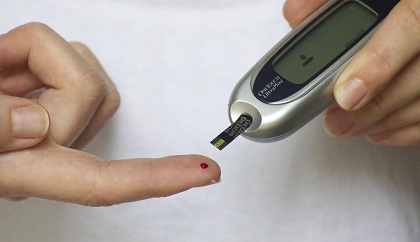
To prevent life threatening condition DKA
A new campaign is encouraging medical staff and parents to spot the warning signs of Type 1 Diabetes.
Around one in four children who are diagnosed will already have a potentially life-threatening condition called Diabetic Ketoacidosis (DKA).
This condition happens when there is such a lack of insulin the body can't use glucose for energy and starts to break down other body tissue, often meaning many children end up in hospital.
Early diagnosis can stop this from happening.
Parents are being asked to look out for the 4 T's- Thirst, Tired, Thiner and Toilet. If they spot these symptoms a simple blood or urine test is required to decide whether a referral to a specialist is needed.
Maureen Watt, Minister of Public Health explains:
"As with most conditions, early diagnosis of type 1 diabetes is crucial. The sooner it can be diagnosed, and appropriate treatment given, the better. Once diagnosed, there’s no reason why a person with type 1 diabetes shouldn’t lead a long, healthy and fully active life.
Sadly, there are still children who are seriously ill by the time they are diagnosed with onset type 1 diabetes. This causes unnecessary suffering to them and to their families. By spotting the early warning signs and getting tested all this can be avoided."
Jane-Claire Judson Director at Diabetes Scotland said:
"A diagnosis of Type 1 diabetes is a lot for any child and their family to take in and respond to. It fundamentally changes a child’s life and has significant repercussions for the family and how they live their lives. What can make this transition even harder is if your child’s symptoms are not picked up early and they experience severe diabetic ketoacidosis.
This is an avoidable situation and one that is traumatic and can have long lasting impact on the child and the family. DKA can lead to coma and brain damage. GPs will see more children displaying the signs and symptoms of Type 1 diabetes than they will meningitis and yet awareness of Type 1 is lower.
The DKA Prevention campaign addresses this and supports clinicians and families to ensure a child’s first experience of having Type 1 is well managed. It is in everyone’s interests that children have the best start in life and are supported to manage what is a complex and challenging condition.
We very much welcome the collective approach between healthcare professionals, Scottish Government and Diabetes Scotland as the patient charity to address these issues."

 John Swinney elected Scotland's new First Minister
John Swinney elected Scotland's new First Minister
 Public consultation on Cupar North development opens
Public consultation on Cupar North development opens
 Man, 44, seriously injured in hospital after crash between Comrie and Rosyth
Man, 44, seriously injured in hospital after crash between Comrie and Rosyth
 11°C
11°C
 17°C
17°C